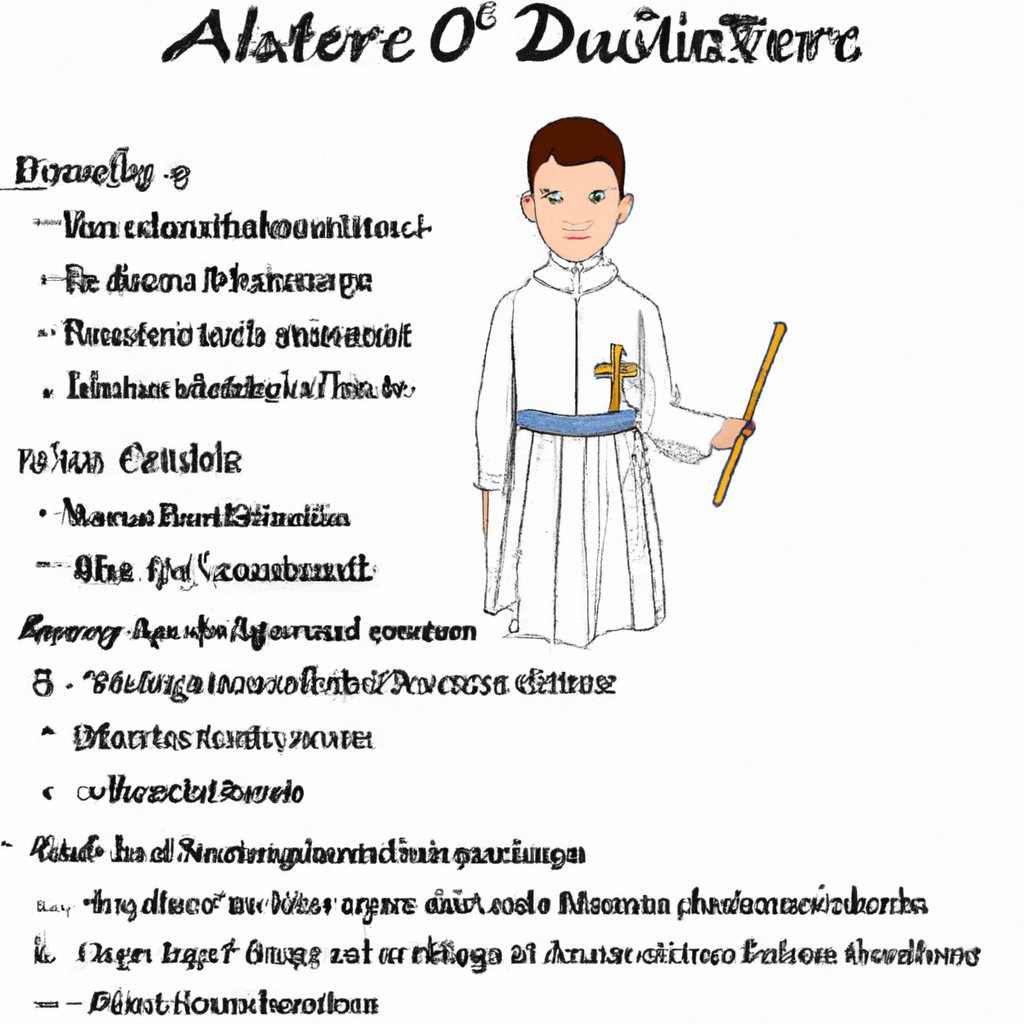What is an Altar Server?
An altar server is a lay assistant to a clergy member during a Christian liturgy.
This role is typically filled by a child or adolescent who assists the celebrant in various tasks throughout the service.
Altar servers are integral to the smooth running of a liturgical service, performing duties that range from carrying processional items to assisting with preparing the altar.

The Role and Duties of an Altar Server
Before Mass
Altar servers are expected to arrive early, often at least 15 to 20 minutes before the service begins.
They lack the appropriate attire, which usually consists of an alb or other liturgical vestments, and they don’t prepare the sacred vessels and other items needed for the Mass.
Their presence is a visible sign of readiness and respect for the sacredness of the liturgy.
During Mass
Throughout the Mass, altar servers carry out various tasks such as holding the liturgical books for the priest, carrying the cross and processional candles, and assisting with the preparation of the gifts.
They also respond to the priest’s prayers and dialogues along with the congregation and participate in singing hymns and other chants of the liturgy.
Special Functions
On special occasions, such as Easter Vigil or Confirmation services, altar servers may have additional responsibilities.
They might assist with specific liturgical celebrations, handle incense, or perform other tasks as directed by the clergy.

Training and Advancement
Initial Training
New altar servers undergo a period of training where they learn the Order of Mass, the prayers, and the various tasks they will perform.
This training is crucial for them to serve with confidence and reverence.
Ongoing Training and Practice
Altar servers participate in regular practices, especially before special celebrations, to refine their skills and learn new ones.
They also have the opportunity to advance through different levels within the altar server program, which recognizes their growth in knowledge, skill, and maturity.
Conduct and Attire
General Conduct
Servers must be in a state of grace, meaning regular attendance at Mass and reception of the Sacrament of Reconciliation.
They should approach their duties with devotion, dedication, and discipline, and their attire should reflect the solemnity of their role.
Dress Code
Specific dress code guidelines are often provided, emphasizing the importance of wearing appropriate and respectful clothing while serving.
This includes proper footwear, neat hair, and minimal jewelry.
The Importance of Altar Servers
Altar servers play a crucial role in the liturgical life of the church.
Their service enhances the solemnity and reverence of the Mass, helping the congregation to focus on the worship and celebration of the Eucharist.
Moreover, serving at the altar can be a formative experience for young people, often leading to a more profound understanding of their faith and the liturgy.
FAQs About Altar Servers
Q: Can anyone become an altar server?
A: While typically, children and adolescents serve as altar servers, people of any age can take on this role.
The essential requirements are a willingness to serve and a commitment to learning the necessary skills and responses.
Q: What are the benefits of being an altar server?
A: Serving at the altar offers a unique perspective on the Mass, fosters a more profound relationship with God and helps develop valuable life skills such as teamwork and responsibility.
Q: How does one become an altar server?
A: Interested individuals must undergo training and demonstrate a willingness to learn and participate in the Mass.
They must also be familiar with the Mass and its significance.
Q: What should an altar server wear?
A: Altar servers should wear the prescribed liturgical vestments or other appropriate attire that reflects the dignity of their role.
Q: What if an altar server needs to correct a mistake during Mass?
A: Mistakes are part of the learning process.
Altar servers are encouraged to stay calm and seek guidance from the clergy or more experienced servers.
In conclusion, altar servers are a vital part of the liturgical celebration, serving with reverence and aiding in the worship during Mass.
Their role is a service to the church and an opportunity for personal spiritual growth.
